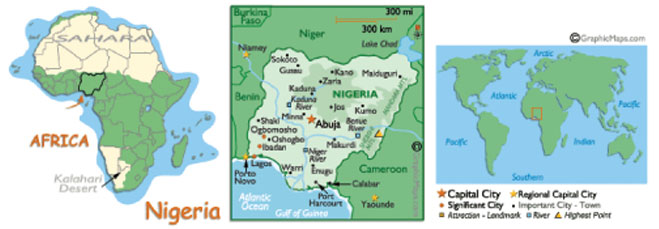Oil - Nigeria
Nigeria has had a very complex history, filled with stories of the British Invasion (I'm referring to the one in the late 1800's, not the Beatles), extensive slave trade, seizure of material and human resources - all of which have had a lasting effect on the struggles this nation faces. The story of oil begins with its discovery in the 1940's. Keep in mind that the British were still ruling the country at this point until Nigeria became independent in 1960. That trigged a period of political unrest, perpetual regionalization of resources, civil war, and an overall lack of essential infrastructure. This had an enormous impact on the oil industry, as the infrastructure was not available for the materials such as roads, pipelines, water, and the people needed to manage.
Despite the history of unrest and corruption, the Nigerian oil industry is the world's sixth largest producer and exporter, producing 2.2 million barrels per day. Nigeria has a proven reserve of 22.5 billion barrels of oil and 124 trillion cubic feet of natural gas. Nigeria supplies 9% of the United States oil imports.
Niger Delta
The Niger Delta is a region of oil wealth yet personal poverty. The Delta extends 70,000 square km and is a complex structure with mangrove forests rich in gas and oil. The federation structure results in no local control of oil revenue for the 7 million people that live in the Delta. Unfortunately, the pollution and environmental destruction is a local issue. To see the effects of the Nigerian oil industry on the Delta region, review the photo essays on the fight for Nigerian oil and environmental impacts by BBC News. You can also view additional stories about Nigeria's oil battles at BBC News - Nigeria.
